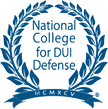Washington Fraud Offenses
There are numerous individual offenses that fall under the umbrella of fraud. All of these crimes rely on using deception to benefit the offender. If you are accused of committing a type of fraud, prosecutors are alleging you used lies or misrepresentations for unlawful personal gain. Typically fraud is related to an unlawful financial gain, however, you can also be accused of illegally obtaining services.
In Washington, you may be charged with a specific fraud-related offense, such as:
- RCW 9A.60.020 – Forgery: You can be found guilty of forgery if, with intent to injure or defraud, you make, complete, or alter a written instrument or possess, offer, dispose of, or puts off as true a written instrument you know to be forged. This is a Class C felony.
- RCW 9A.60.040 – First-Degree Criminal Impersonation: You may be convicted of a crime if you assume a false identity and act in the assumed character with the intent to defraud another, or if you pretend to be a representative of some other person, organization, or public servant and acts in this pretend capacity with the intent to defraud. This is a Class C felony.
- RCW 9A.56.320 – Financial Fraud: You can be found guilty of a crime if you print or produce a check or other payment instrument in the name of another person or entity or with the routing number or account number of another person or entity, without permission. This is a Class C felony.
- RCW 9A.56.290 – Unlawful Factoring of Credit Cards: You can be convicted of a crime if you use a scanning device to access, read, obtain, or store information encoded on a payment card without the owner’s permission or with the intent to defraud the owner of the card or a financial institution. A first-offense of credit card fraud is a Class C felony.
- RCW 9.34.020 – Identity Theft: It is illegal to knowingly obtain, possess, use, or transfer any means of identification or financial information of another person with the intent to commit a crime. If you use another person’s information to obtain more than $1,500 in money, goods, or services, or you knowingly target a senior or vulnerable person, then this is first-degree identity theft and a Class B felony. Other instances of identity theft are of the second degree and are a Class C felony.
- RCW 74.08.331 – Welfare Fraud: If you willfully make any false statements, representations, impersonations or willfully fail to provide a material fact to gain eligibility for public assistance such as medical care or food stamps, you can be charged with first-degree theft, punishable by up to 15 years in prison.
- RCW 46.37.540 – Odometers: It is unlawful for you to disconnect, turn back, turn forward, or reset the odometer of a vehicle with the intent to change the number of the miles indicated on the gauge. This is a gross misdemeanor.






